This is soup club
Plus: Why caregivers shouldn't doomscroll
(That’s me reading the story! To hear them all, subscribe to the podcast.)
I’m Aaron, full-time caregiver to Diane, who was diagnosed in 2020 with Lewy body disease. I write up a bunch of drafts which eventually turn into an issue of The Diane Project. Here is the first one. And now … the second. As the kids say, be sure to subscribe.
It was the morning after the election. I awoke at 4 a.m. to answer a call of nature — in this case, my wife’s. She calls to me most nights. I reach over and touch her to put her at ease, then get up and walk to her side of the bed. She’s always happy to see me. The feeling is mutual.
On this night we made our short roundtrip to the bathroom, then I put her to bed and shuffled into the kitchen. I like going to bed with Diane, and retiring at 8:30 buys me a lot of sacred morning time. But I missed out on the election results. So I put in my earbuds and turned on Sky News. I listened long enough to make coffee, then shut it off.
Over breakfast we watched a little more coverage, and I explained the results in simple terms (“the black lady and the Minnesota governor lost”). Then I switched the TV to music, and she listened while I made soup.
Our faith community has a sister farm in western Illinois, and it was their butternut harvest that week. Someone brought me a massive squash that was like holding a gallon of milk. They could’ve swaddled this thing and used it in the Christmas pageant. But I had 8 quarts of soup to make, so I used it all.
At 10 a.m. one of Diane’s aides arrived. I took my stock pot off the stove, loaded it into the soup wagon and headed to work.
I rent a desk at Office 805, a co-working space that’s a bicycle ride from my house. The owner, Dan Bleier — that’s him on the left — is a gregarious, funny, generous-minded person who exemplifies Evanston. His longtime friend and co-conspirator, Charlie Davidson, has his office next to the break room, where the three of us kibbitz.
A few weeks ago Charlie walked in and found me making a post-marathon feast. “You know what we should do?” Charlie said, pointing to the Instant Pot. “We should do soup.” And lo, 805 Soup Club was born.
On this day I’ve made chunky butternut squash soup. Someone else brought a huge roaster filled with chili.
Attendance at soup club has grown steadily, though Charlie and I have had to get on Dan’s case to promote it more. After all, the first rule of soup club is: Talk about soup club! (Dan shrewdly hired me to be his communications specialist at no pay.)
The second rule of soup club is: Talk about the soup! Everyone compliments the chefs and asks how they made their soup. (I added chickpeas for protein and farro for texture, then used my stick blender to make a chunky puree.)
I doubt that homemade soup will cure a post-election hangover, though I suppose it couldn’t hurt. But no one in soup club that day even mentioned the election. The mood was relaxed and chatty. Everyone seemed happy, even those of us who voted for the losers.
A friend texted me, with sincere feeling, “Hope you are okay this morning.” The day after the election I kept getting hints that others around Evanston, which went 92 percent for Harris, were struggling with the results. The local college was even offering “post-election wellness spaces” to help students cope with their loss.
I was one of the 92 percenters. What right did I have to enjoy soup with these people, some of whom (I’m pretty sure) voted for Trump?
For one thing, like most of my Democratic friends, I’m a well-educated U.S. citizen. So it’s unlikely my world will be rocked by anything the next president does. There will be policies that I’ll strongly oppose. But I’m a firm believer that past is prologue, which means Trump 47 will be a crapshow of self-serving noise and chaos, just like Trump 45 was.
For another thing, my priorities have changed. I’m currently focused on the 16 hours or so per day that I spend on caregiving duty with Diane. And once it became clear that the election would be Trump’s to lose, I had to take stock of how much psychic energy I wanted to spend on this guy.
Fortunately, my wife could help me answer that question.
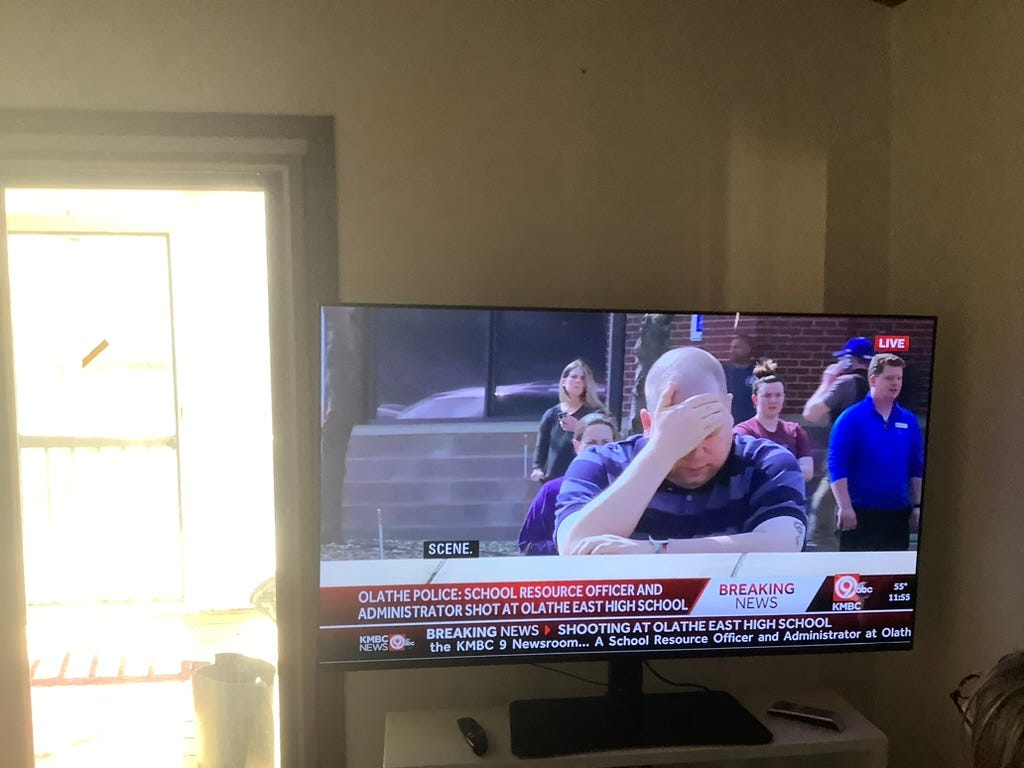
When we lived in Kansas City, Diane and I had a nightly ritual around the TV. I made dinner while we watched Jeopardy!, then local news, the network news and finally the NewsHour.
Starting about a year after her diagnosis in 2020, Diane gradually lost interest in the news. Nowadays a few minutes is all she can tolerate. One of our aides was watching the NewsHour with her recently when she said in a perfectly clear voice, “I don’t understand this.”
About a year ago we shifted to a new nightly ritual: music videos. Classical, jazz, folk, gospel, early female pop — there’s endless variety on YouTube and for 10 bucks a month, it will skip the ads.
One fine day in late spring or early summer, we were on the couch listening to music. I was also checking the news on my phone. Suddenly Diane turned to me and said, “What’s going on?”
Nothing was going on. But a story I thought I was reading to myself had provoked me; a muscle twitched or I muttered something. I was so absorbed in the story that I hadn’t noticed my reaction, but she had.
This kept happening over time. I could tell it was upsetting her. Each time I assured her that nothing was going on, but she didn’t always buy it.
And then I had one of my aha moments. Let me try to explain it.
As a cognitive disease progresses, a person often loses their inhibitions. That happened to Diane starting about a year after her diagnosis. If I said something she objected to, or did something she didn’t want done, she would quickly get upset, profane, emotional.
At first I was taken aback. (Once I said, “That escalated quickly,” which she didn’t appreciate.) It seemed like overreacting. Then I learned from other caregivers that this is quite common. I had to accept this change and adapt to it.
I began to view her hypersensitivity in a new light. Like all couples, we had our squabbles. We tried to fight fairly and make up lovingly. I was the hothead, she was the restrained one. I got a lot of feedback about the tone of my voice. I tried to do better, didn’t always succeed.
But now here she was, no longer restrained, giving it all back to me with interest. And the kicker was, I couldn’t argue with her anymore! If she was upset, that was my problem. The only way to restore order was to apologize profusely and be kinder.
With great regret I realized that these were behaviors I should’ve been modeling long ago. But better late than never.
All of this was on my mind as I sat on the couch with her. Whenever I would check my news app, something I read or listened to would trigger me. This reaction would be upsetting to Diane. My attempts to explain away my reactions were useless. She didn’t want to hear about the story I was reading. Her life is lived in the liminal space where cognition is no longer necessary. If I was going to be with her, I needed to respect that. I needed to put her feelings above my interests. It was really no different than a marriage argument, and it was an argument I had to be willing to lose.
So … I deleted my news app. I also got Facebook off my iPhone screen, so now I almost never open it. I trimmed my newsletters and podcasts to a well-tempered few (the list is in the endnotes below).
And with that, election madness more or less vanished into the ether. Maybe it was a coincidence, but Diane and I are having our best stretch of days and nights since our caregiving journey began. And I don’t think I’ve missed that much.
Well, there’s one thing I do miss — our nightly news ritual. In our big house in Kansas City, we’d pass each other during the day like ferry boats. Then we would come together to eat, watch and talk. I kept the remote handy. She’d say, “Pause it,” and we’d talk for a minute or two. Maybe about something on the news, maybe something else. I’m not sure our nightly ritual connected us to our world so much as it reconnected us to each other. I do miss that, terribly.
Cognitive caregiving is a lonely task. And loneliness, according to the U.S. Surgeon General, is as hard on a body as smoking 15 Camels a day.
Others may disagree, but I think the comparison is dead-on. When we doomscroll instead of making real-life connections, we make ourselves mentally and physically unhealthy. And just as Big Tobacco preys on heavy smokers, the tech industry profits off its most addicted users by continuously feeding their outrage and fears.
Thanks to the work of Jon Haidt and his book The Anxious Generation, we now have solid evidence that social media does unique harms to the mental health of teenagers, especially girls. But not a lot of people are asking the follow-up question: If it’s doing that to our kids, what’s it doing to the grownups?
The tragic aspect of our obsession with our screens is that it leads to thoughts and behaviors that go against our nature. A growing consensus among scientists is that we’re hardwired to be optimistic and to connect with others — not just family and allies but neighbors, communities, even perfect strangers. Friendliness is in our DNA.
Several excellent books on the topic have come out in recent years, but the one I want to tell you about is Humankind: A Hopeful History, the 2019 global bestseller by Dutch journalist Rutger Bregman. Humankind was one of the three most influential books I read in 2024, and was very helpful as I was pulling away from my lifelong media habits.
If you’re a regular watcher of 60 Minutes then I guarantee you have seen stories based on chapters from Bregman’s book.
One is about the long-forgotten saga of the “real Lord of the Flies.” A boatload of boys from Tonga washed up on a deserted island in the 1960s and wound up doing exactly the opposite of what anyone who had read William Golding’s novel would have expected. Instead of competing viciously for the island’s scarce resources, they cooperated, handled disputes peacefully and lived large. When finally rescued, the castaways were found to be in excellent health and even better spirits.
Bregman also writes about Brian Hare, whose research into the emergence of dogs from ancestral wolves was too irresistible for 60 Minutes to pass up. Hare’s thesis is that the least vicious wolves began cooperating with humans and, as their friendliness was rewarded, they evolved into dogs.
As Bregman writes, Hare was inspired by a long-running Russian experiment that turned silver foxes, a completely wild breed, into docile pups through selective breeding. This experiment was vital to understanding why Homo sapiens became the dominant hominoid while our rivals, including Homo neanderthalensis, died out.
“The Neanderthal brain was, on average, 15 percent larger than our brains now,” writes Bregman. “We have a MacBook Air, and they got a MacBook Pro.” Neanderthals were cooks and artisans, “astoundingly intelligent,” not to mention ripped as hell.
Until recently, the leading theory behind their disappearance is that that Homo sapiens wiped them out. Yuval Noah Harari, in his book Sapiens, called it “the first and most significant ethnic-cleansing campaign in history.” Harari admits his proof is thin — mostly smashed Neanderthal skulls — but as Jared Diamond noted in his review of Harari’s book, “murderers have been convicted on weaker circumstantial evidence.”
The fact that Harari and Diamond have written bestsellers that reinforce negative notions of human nature should serve as a reminder that bad news doesn’t just live on our screens. As Bregman notes, two generations of readers were influenced by the Richard Dawkins book The Selfish Gene, which ended with the author’s exhortation, “Let us try to teach generosity and altruism … because we are born selfish.”
But it turns out we aren’t.
The problem with the Neanderthals, Bregman writes, is that they were rugged individualists. They hated cooperating. The smaller-brained Sapiens formed alliances, trade networks, dynasties. They weren’t smarter or more clever, but they were friendly — “Homo puppy,” as Bregman puts it.
Or as Brian Hare, the dog evolutionist, explained to Anderson Cooper,
“There were at least four to five other human species. And the question then becomes, ‘Well, why are we the only one left?’ … What dogs point to, is that we were the friendliest species that ever evolved among humans. And that we survived because we are friendly.”
Okay, then why are human beings such turds to each other? If our DNA is toward friendliness, how do you explain Bashar al-Assad? It’s complicated, and that’s why Humankind is a book and not a tweet. But basically, our desire to connect with others can be manipulated. We can be drawn into groups that view other groups with suspicion, fear and even hatred. Tribalism is great if you follow a sports team, not so great if you follow a fascist ideology. Bregman explains all of this in an ingratiating and compelling style, with help from a lively English translation by Elizabeth Manton and Erica Moore.
The heart of the book, in my opinion, is in the early chapters where Bregman takes on the pop-culture-driven belief that humans are awful by nature. One by one, he opens up those old depravity tropes I was raised on — not just Lord of the Flies but the Milgram Experiment, the killing of Kitty Genovese, the “tragedy of the commons” (i.e., why we can’t have nice things) — and peels back the layers to expose a shocking pattern of shoddy research, bogus reasoning and lazy journalism. Well, I guess it’s shocking if you haven’t been on X lately.
Bregman explains that, while we are indeed wired for friendliness, we have another evolutionary strategy known as negativity bias. Also called the “fight or flight” instinct, it was meant to be used in rare emergencies. The problem is that Big Tech has developed a lucrative business model around triggering our fight-or-flight instinct 50 times a day.
“It’s by tapping into our negativity bias that these digital platforms make their money,” Bregman writes. “Because bad behavior grabs our attention, it’s what generates the most clicks, and where we click the advertising dollars follow.”
And each time we click, we’re ensuring more helpings of those same messages, each of them reinforcing our negative thoughts. In this way, technology nurtures us to contradict our nature, and it becomes an article of faith that humans suck. Among other harms, thinking that way is really stressful — like, 15 cigarettes a day stressful.
Bregman’s remedy is to avoid TV news, turn off push notifications and read more nuanced pieces instead of quick hits. Above all, he writes,
“Disengage from your screen and meet real people in the flesh. Think as carefully about what information you feed your mind as you do about the food you feed your body.”
Food for thought. Which reminds me, there’s one more rule to soup club:
It’s never about the soup.
The soup wagon. I’ve been pedaling this around since July. I love leaving the CR-V at home and using the soup wagon to haul groceries, garden supplies, the weekly CSA drop and books from our warehouse in Skokie, as well as the eponymous pots of lunch.
If there’s an object that captures 2024 and the work I did connecting with people, it’s this Amazon purchase and the bicycle it’s attached to.
I’m lucky in that I married a woman who kept me from crawling into the shell of my own head. Diane wasn’t a bon vivant or the life of the party, but she knew how to connect with others. She tapped into my friendliness gene and made me a more social animal.
And so, as we moved into a new neighborhood and my emotional and intellectual ties to Diane frayed, I knew what I had to do.
Our backyard house faces an apartment building. Even before construction was over, I’d gotten to know some of our neighbors. One was a delightful woman who taught at a community college and was, like me, a cancer survivor. Her parking spot was in the alley, and we often talked as she was coming and going.
Earlier this year she confided to me that her cancer had returned. “I’m telling you,” she said wearily one morning, “radiation is kicking my ass.” A few weeks later I got an urgent text from her. She was going into hospice and needed help clearing out her apartment.
When I arrived with a crew from my faith community, she was lying on her bed, barely able to gesture. She told me to take what I wanted. I took her old three-speed bicycle.
And now it’s pulling the soup wagon.
Endnotes
Her name was Sabine Gourgue. I would say, “May her memory be a blessing,” but it already is. You can still contribute to her family’s GoFundMe.
Some readers may reasonably ask how I can just switch off a man who, in the past week alone, threatened to sue media outlets, take back the Panama Canal and ship every undocumented immigrant home. I apologize if this answer seems rushed, but I really wanted to get this thing delivered by Christmas.
Four years of presidency proved that Trump is clearly unfit for office, by which I mean he doesn’t know how to govern. To do whatever nutty thing he just promised to do on Truth Social, let alone anything in Project 2025, requires discipline and organization. A president has to work with Congress and follow the Constitution. By this measure he failed miserably in his last term. His two signature achievements — the tax cut and Supreme Court nominations — simply required a warm Republican body in the Oval Office. Mitch McConnell handled the rest.
The immigration issue is one that’s sensitive for me, as the friend of undocumented persons. I can only imagine how exhausting it must be for them to live with the constant threat of deportation. But that feeling didn’t start with Trump. The Biden Administration deported more persons in 2024 than Trump did in his entire term of office. Obama was the “deporter-in-chief.” I just think it’s important to keep in mind that with Trump, perception and reality are two planets that rarely align.
The popular Substack writer Matt Yglesias adds,
“Trump thrives on an atmosphere of hysteria and, to an extent, even markets himself as a guy who’ll do abuses of power to help enact his followers’ revenge fantasies. I think it’s best to try to remain even keeled and to remind people that while a wide range of outcomes is possible, the most likely one by far is that Trump abuses power mostly for the purposes of corruption and self-enrichment.”
I get most of my news from a diverse range of newsletters and podcasts, in order of importance:
Prof G Podcast with Scott Galloway
The aforementioned Yglesias
I also take newsletters on culture and life, including Anne Helen Petersen’s Culture Study (which has a strong reader community) and the surprisingly great Arnold’s Pump Club. I might spend more time following the Chiefs and the NFL than the news; this YouTuber cracks me up.
Here is the Bookshop link to Humankind; you can check out the ebook with Libby. All my Bookshop links 100% benefit the Robert H. Levine Foundation for Lewy Body Dementia Research. Other titles I’m recommending include The Power of Regret, which I think is Dan Pink’s best book; and Second Class: How the Elites Betrayed America's Working Men and Women, a deeply reported alternative to Hillbilly Elegy for the MAGA-curious.
Land of Linkin’
This 2020 podcast offers a good primer on negativity bias
Watching your party lose an election is crushing, but it still beats being a Bears fan
Now I can finally get back to reading Carson the Magnificent — soooo good
A charity I support is helping the longest wrongfully-imprisoned woman in U.S. history to rebuild her life
The Dick Van Dyke-Coldplay video is a delight
Rickey Henderson, RIP; I loved his game
In local news, here’s a wonderful profile of my 805 officemate who joined the circus at 17
Our friend Harriet Frazier, who wrote five historical books after age 65 including Slavery and Crime in Missouri, has died at 90
Finally …
This newsletter is free. I said I was aiming for two to three of these per month. I’ll keep aiming, but it might take a while to hit that. No editor ever asked me to write about myself.
Comments are on. I’m not looking for attaboys so much as nuanced and interesting feedback. (You know that tendency to ignore the 99 nice comments and focus on the one that says you suck? That’s also negativity bias.) Also, I’d love to see commenters making connections with each other.
Did someone forward this to you? Subscribe here and get The Diane Project in your own inbox.
If this email is landing in the "Promotions" section of your inbox, you can fix this by dragging it into your "Primary" inbox, or by adding aaronbarnhart@substack.com to your web contacts.
Oops! I’m sure her eyes were smiling under there. On behalf of our family, happy Chrismukkah and take care. — Aaron



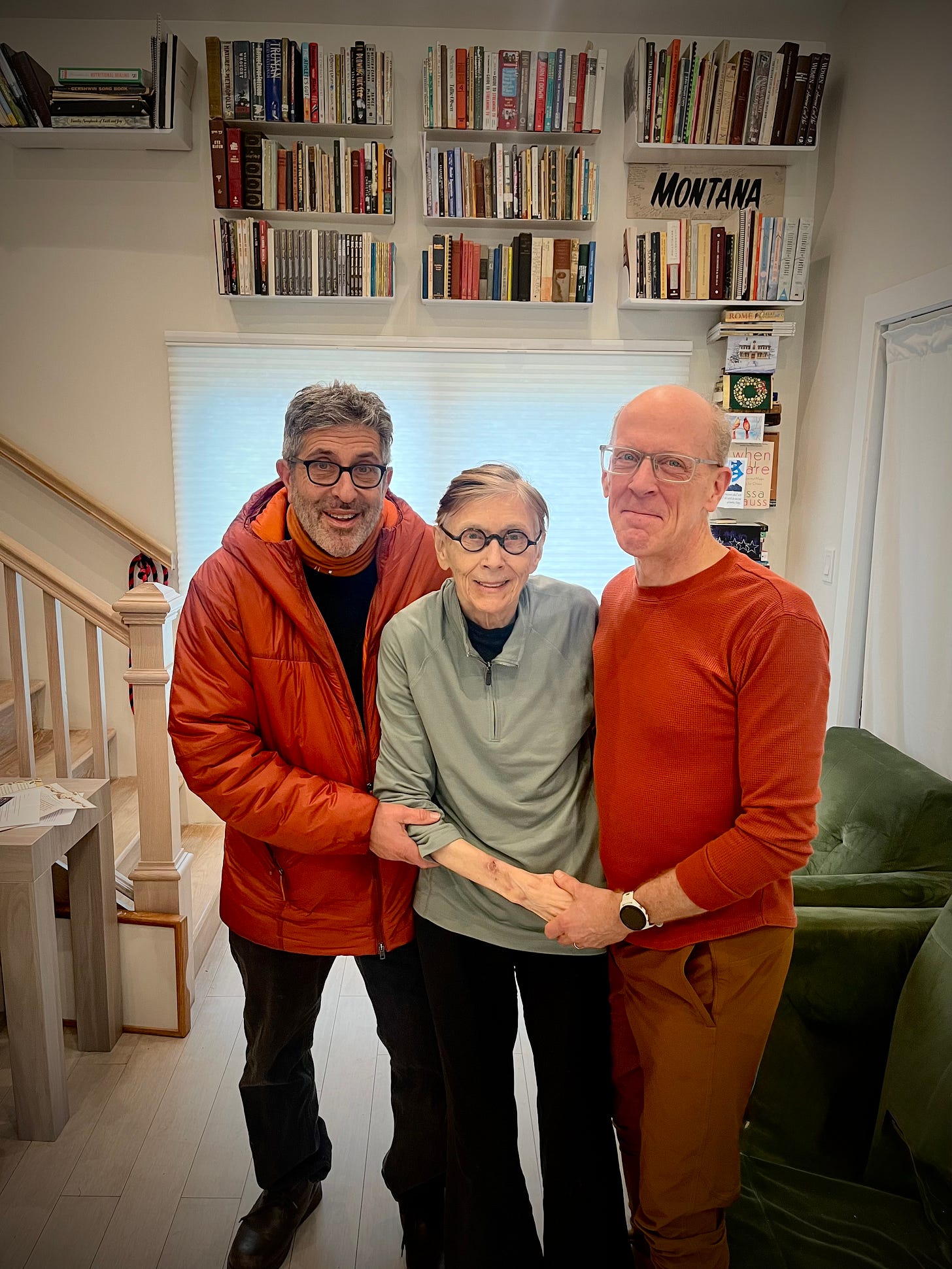
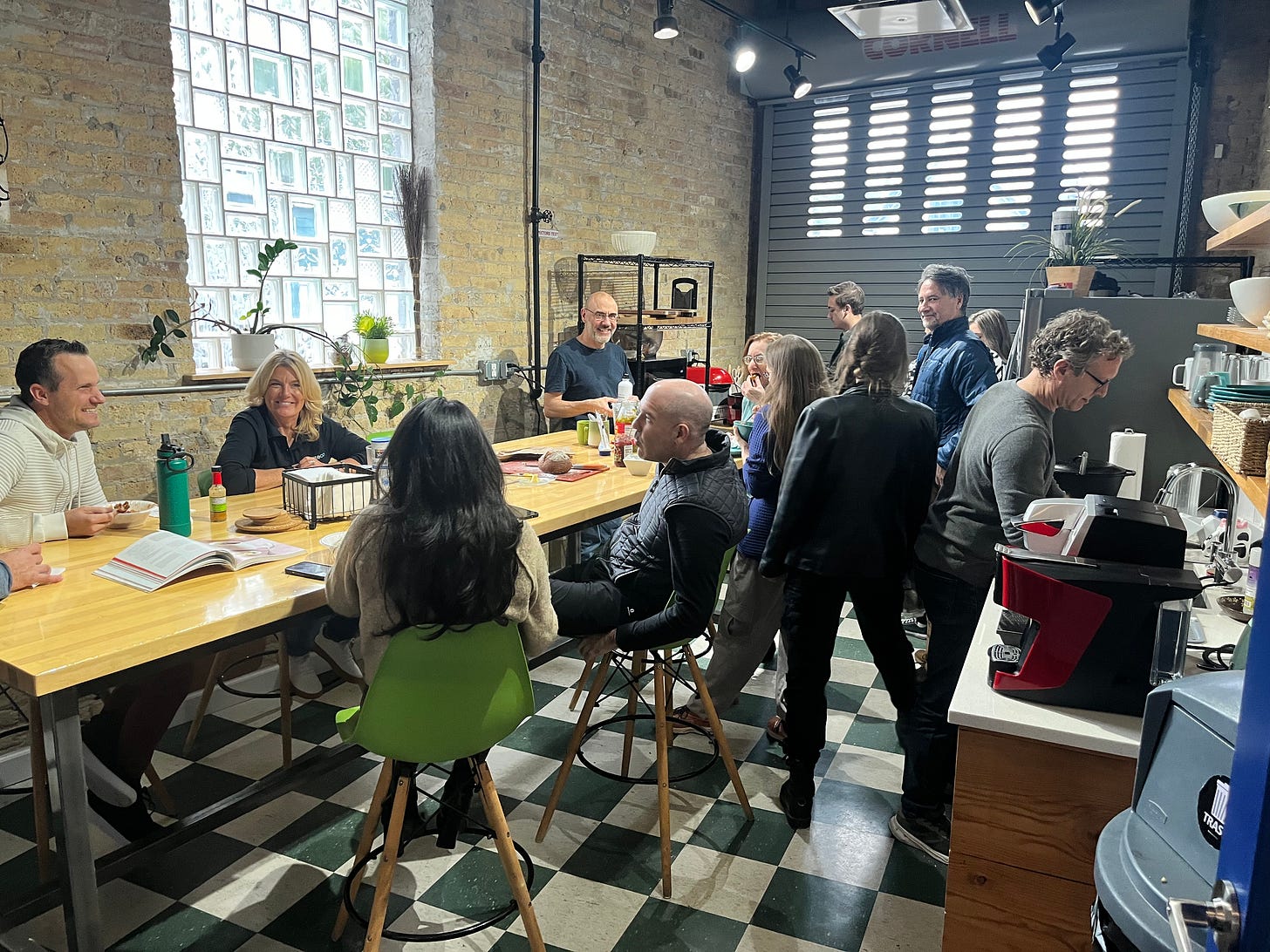
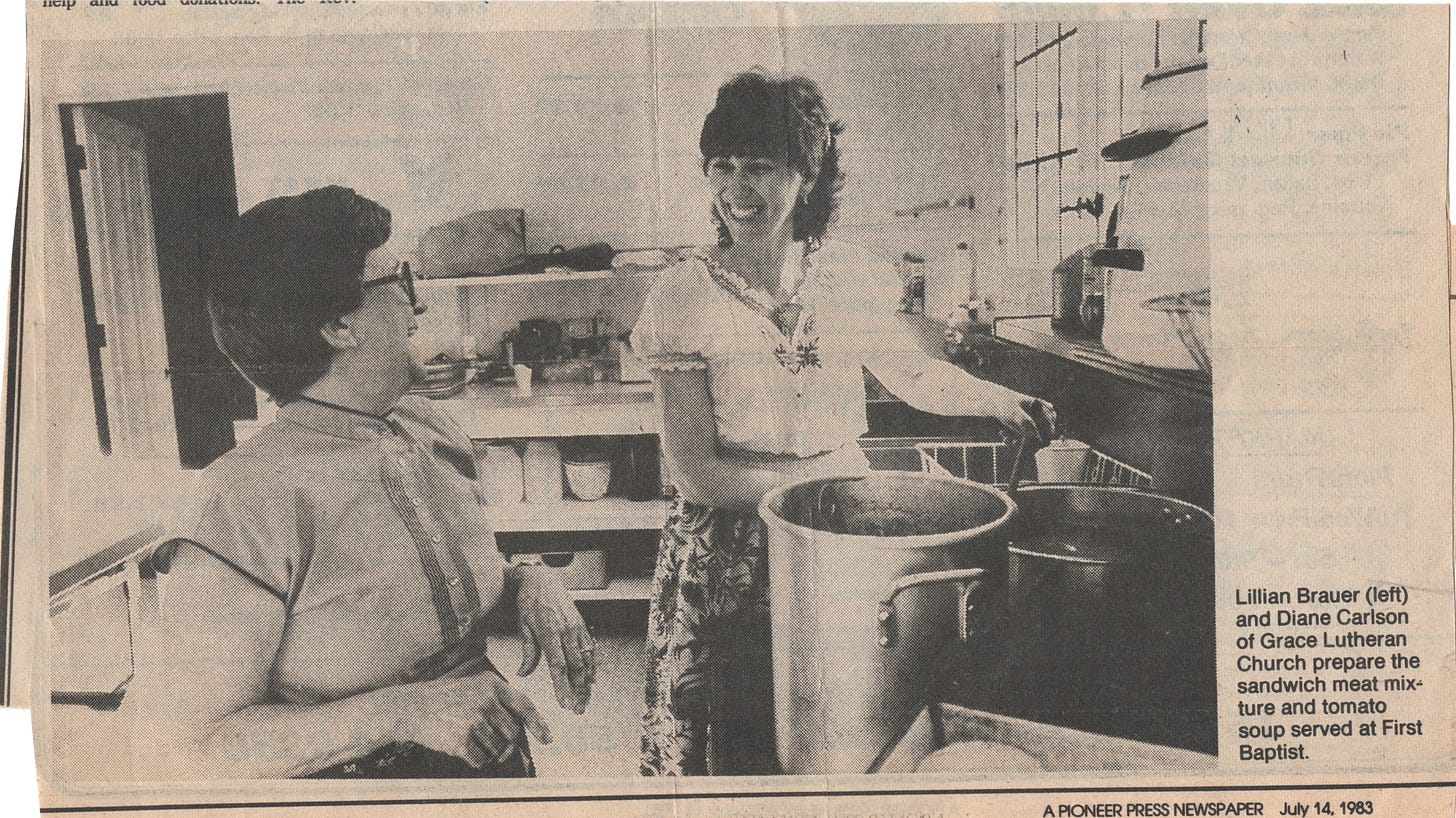
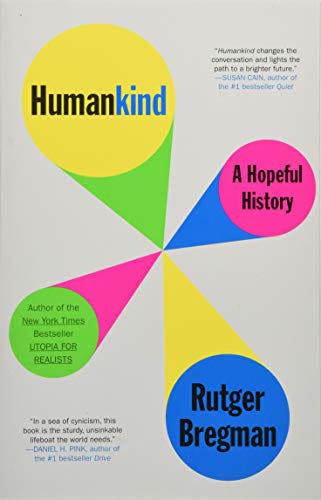
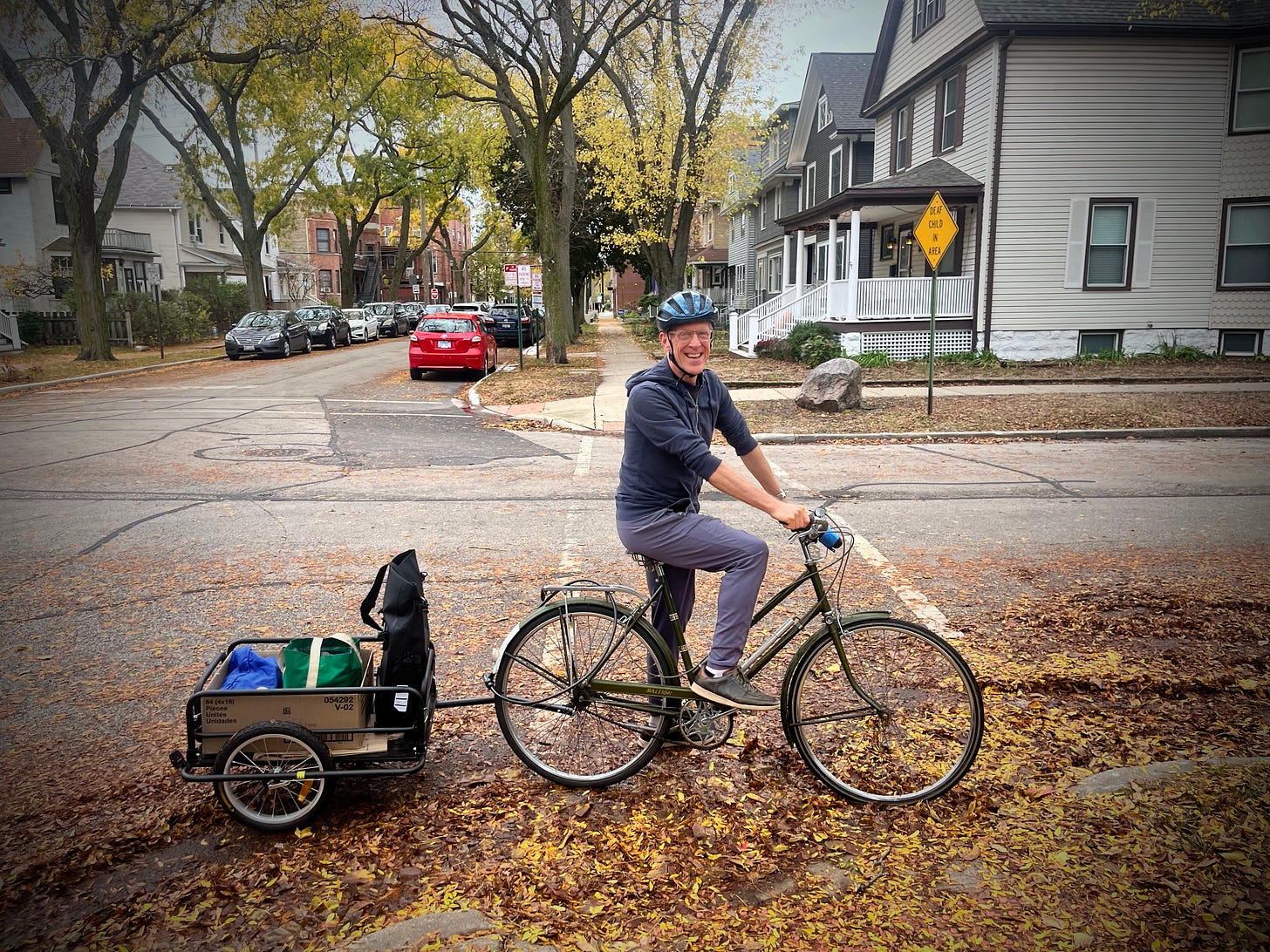

Ok then, attagirl to Diane! Seriously, though, Aaron, thanks for sharing these thoughts of hope and perspective.
First, a happy holiday season to the both of you, and really to anyone who subscribes. I know you don't want to hear hazzahs, Aaron, but to heck with that, "Hazzah."
I have a semi-regular discussion with a good buddy of mine who was extremely active on the left in the '60s, so much so he was one of the Chicago 7, and the discussion involves something you touch on, when or if do you surrender the activism and just enjoy the time you have left. I still don't know the answer to it. Neither does he, because as we say one thing, our emails are filled with the other. Having just finished a book on the Hiss case after 50 years of on and off work, I've come to believe that work toward justice doesn't and can't end. Yet, justice for someone comes in all forms. I'm sorry for another hazzah, but in many ways you are doing justice for Diane in its purest form.